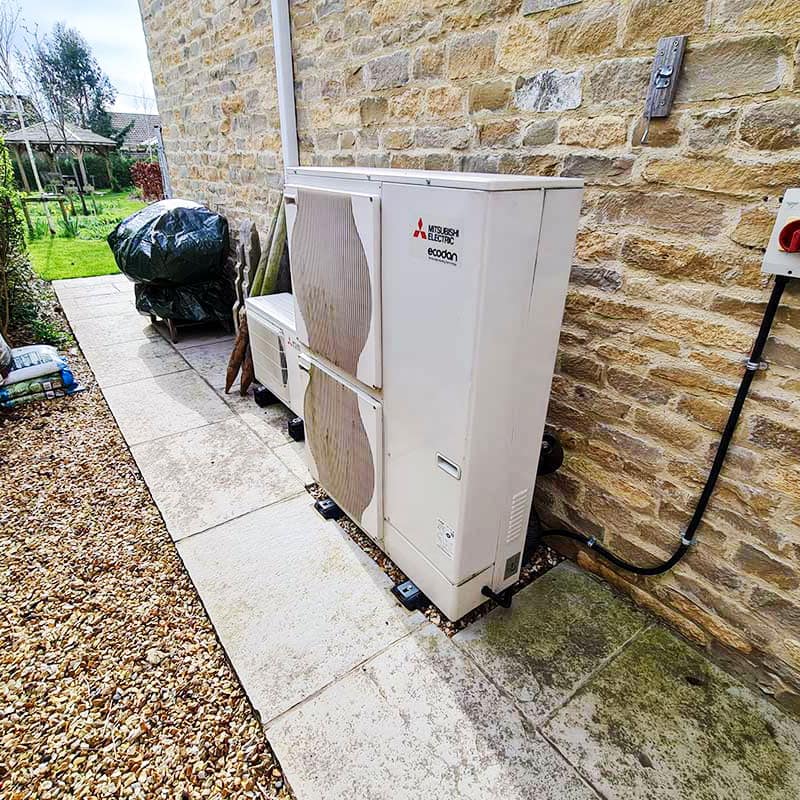
Air source heat pumps (ASHPs) are an energy-efficient solution for heating and cooling your home. They work by extracting heat from the outside air even in cold weather and using it to warm indoor spaces and hot water. ASHPs are a sustainable alternative to traditional heating systems, helping reduce energy bills and carbon emissions. Easy to install and suitable for most properties, they offer year-round comfort with minimal environmental impact.
Air source heat pumps offer a modern, eco-friendly way to heat your home and provide hot water. By capturing heat from the outside air, they deliver reliable warmth even in colder months while using much less energy than traditional systems. Quiet, low-maintenance, and compatible with most homes, they can help lower your carbon footprint and reduce heating costs. It’s a smart upgrade for comfortable, sustainable living.
They extract heat from the outside air (even in cold weather) and transfer it indoors for heating.
They are most effective in moderate climates but modern models can function efficiently in sub-zero temperatures.
They are eligible for government incentives or rebates in many regions (e.g., UK’s Boiler Upgrade Scheme) and they can significantly reduce heating bills, especially when replacing electric resistance or oil heating.
They require an outdoor unit (needs space and airflow) and are easier to install than ground source heat pumps.
Low carbon emissions and environmentally friendly
Dual function: heating and cooling
Minimal maintenance required
Reduces dependence on gas or oil heating
An air source heat pump is a low-carbon heating system that extracts heat from the outside air and transfers it into your home for heating and hot water.
Yes, if properly sized and installed. It may require upgrading your insulation, radiators, to optimize performance.
Models are reversible and can act as air conditioners in summer. Be sure to choose a heat pump with this feature if cooling is important to you.
Minimal maintenance: regular filter cleaning, keeping the outdoor unit clear of debris, and an annual professional checkup are usually sufficient.
They are cheaper to run than electric resistance heaters, oil boilers, and in many cases, gas boilers—especially when paired with good insulation and smart controls.